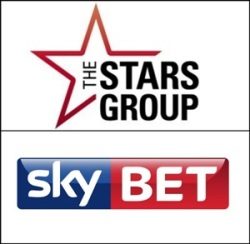Is PokerStars Acquisition Really A Game Changer?

Now the poker industry has begun digesting the news of Amaya Gaming’s surprise acquisition of PokerStars and Full Tilt Poker for $4.9 billion, analysts have started trying to assess what the seismic business deal will mean for the future of online poker. Initially, optimists assumed the purchase would lead to a reentry of the world’s biggest poker room to the US market, but as we will discover things are not quite as clear cut as they may seem.
Deal compliments Amaya’s B2B
The core business of Amaya Gaming has been the development and supply of games and platforms to the regulated iGaming industry, but the Canadian-based company will now complement its B2B businesses, with the B2C poker business of the Rational Group, which includes
PokerStars, Full Tilt Poker, live poker tours, and online/TV poker programming.
Commenting on the deal, Amaya Founder, Chairman and CEO David Baazov, said: “This is a transformative acquisition for Amaya, strengthening our core B2B operations with a consumer online powerhouse that creates a scalable global platform for growth.. Working with the experienced executive team at Rational Group, Amaya will continue that tradition of excellence and accelerate growth into new markets and verticals.”
Amaya to be world’s biggest publicly-traded igaming company
One of the biggest surprises of the Amaya Gaming acquisition was the huge $4.9 billion price tag paid by the company, as PokerStars is now not only valued significantly higher than other global online gaming companies, but can also can hold its own against traditional live casino businesses. Publicly traded online gaming company Playtech, for instance, has a market capitalization of $3.1 billion, while Bwin.party is valued at $1.5 billion, and 888 at $704 million.
On the live casino front, the world’s biggest casino companies, such as Las Vegas Sands ($60.11bn) and Wynn Resorts ($20.27b) are obviously way out in front with their valuations, but other high profile companies such as MGM Resorts ($12.2bn), and Caesars Entertainment ($2.6bn) are more in the ball park.
Interestingly, last year PokerStars’ $1.1 billion in revenues translated into an EBITDA of $420 million and a cash flow of $317 million, meaning its sales price is a huge 15.5 times cash flow and 11.1 times EBITDA.
PokerStars to offer casino games and sports betting
Amaya Gaming probably paid such a high figure for PokerStars as it not only generated $1.1 billion from a global poker industry estimated to be worth $4 billion last year, but it also has the potential to make strides into the global market for casino games worth around $25 billion. Thus far only Full Tilt Poker offers Amaya Gaming supplied casino games, but after the sale PokerStars, too, is expected to follow suit. With the Rational Group boasting a massive 85 million registered players, the potential to earn extra gambling revenue becomes huge, and as Amaya CEO David Baazov, explains:
“[Rational’s] companies do not only have the ability to attract new players, but they are also able to offer popular tables and slot games to their millions of players using their poker platforms.. We estimate we can become a strong operator in the [sports betting] market in a few years, keeping the existing online poker players form spending their dollars on other sports book operators.”
Still a bad actor?
Amaya Gaming has also stated its intention to enter the US online gambling market, an opportunity unavailable for PokerStars’ previous owners, the Scheinberg‘s (photo), who had previously flaunted the UIGEA in order to grow into the online poker behemoth it is today. Amaya believes their acquisition will enable PokerStars to shake of its persona non grata label, and be accepted for licenses in regulated markets such as New Jersey where Amaya already powers the casino business of a number of igaming companies.
Nevertheless, just because Amaya has bought PokerStars and the previous owners will step down doesn’t automatically mean PokerStars will be welcomed back stateside. In California, for instance, the proposed online poker bill being supported by tribal interests insists on banning companies, trademarks, and software which were used post 2006. The same restrictions are also in place in New York and Pennsylvania.
US PokerStars will not be the same product
Supposing PokerStars is able to convince regulators to allow it to reenter the US market, the current state of online poker in the US is currently just a shade of its former self with some questioning whether the game could ever attain the peak popularity it enjoyed several years ago. Consequently, player pools are likely to remain significantly lower for the time being resulting in lower available stakes, less games and ultimately lower revenues for PokerStars. Needless to say, it will be a different landscape PokerStars would be returning to and so both the company and players will have to adjust their expectations accordingly.










